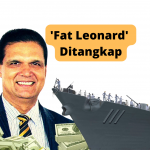LEONARD GLENN Francis, the Malaysian military contractor who fled the United States last month while on house arrest in San Diego, will be freed from Venezuelan custody in two months unless the U.S. requests his extradition, according to a Venezuelan Supreme Court decision published last week.
If the U.S. does request the extradition of Francis, better known as “Fat Leonard,” the Venezuelan Supreme Court will then rule on the merits of the request, according to the decision.
Francis, the mastermind of the worst bribery and corruption scandal in U.S. history, is wanted for violating the conditions of his pretrial release by fleeing just weeks before he was set to be sentenced in his criminal case in U.S. federal court.
The ruling was published Oct. 13, but the clock won’t start on the two-month deadline until Venezuela’s foreign affairs ministry notifies the U.S. of the decision. It was unclear Friday if that notification had happened.
The ruling noted that as of last week, Venezuela had not received a formal extradition request from the U.S.
The U.S. Department of Justice’s Office of International Affairs is largely responsible for extraditions. A DOJ spokesperson wrote in an email Friday that the agency “generally does not comment on extradition-related matters until a defendant is in the United States.”
A spokesperson for the U.S. Attorney’s Office in San Diego, where Francis was charged and later helped prosecutors build their case against dozens of Navy officers, wrote “we are unable to comment on extradition matters.”
Francis, whose 57th birthday is Saturday, was arrested in 2013 during a sting operation in a San Diego hotel. He pleaded guilty in 2015 to bribing Navy officers and defrauding the U.S. out of at least $35 million. He remained in pre-sentence custody for years while cooperating with the government’s investigation but was released on a medical furlough sometime around early 2018.
He remained on house arrest due to the medical furlough until Labor Day weekend, when he cut off his GPS monitor and fled to Mexico. Interpol agents in Venezuela arrested him about two weeks later, saying he had traveled from Mexico to Cuba to Venezuela, and had planned to travel to Russia.
Francis has since sought asylum in Venezuela. It was unclear Friday how his asylum plea could affect a potential extradition request.
“I imagine the (Venezuelan) government (will) examine if there is a motive for asylum,” Rogelio Pérez-Perdomo, a Stanford Law School visiting faculty member from Venezuela’s Universidad Metropolitana in Caracas, wrote in an email. “(Then) probably the Venezuelan judges will examine the (extradition) request and decide.”
The Department of Justice’s Office of International Affairs says extraditions “can take many months or even years to complete.” U.S. prosecutors must prepare the request, which the State Department then formally presents through diplomatic channels.
A foreign judge, or judges, then determine if the U.S.’s extradition request meets the requirements of the countries’ extradition treaty and makes a ruling whether the person should be extradited, according to the DOJ. Lastly, an executive authority such as a foreign affairs secretary makes a final determination whether to extradite the person.
Each decision could be subject to multiple levels of appeal, according to the DOJ.
Though extraditions between the U.S. and Venezuela have been rare amid tensions between the countries over the past two decades, there were signs earlier this month of a slight thaw in the frosty diplomatic relationship. On Oct. 1, Venezuela freed seven imprisoned Americans in exchange for the U.S. releasing two nephews of President Nicolás Maduro’s wife who had been jailed for years on narcotics convictions.
The Associated Press, citing an anonymous U.S. official, reported that Maduro had been willing to free all imprisoned Americans in Venezuela if the U.S. had included in the deal Alex Saab, a Colombian businessman facing U.S. federal charges related to his work with the Venezuelan government.
Maduro’s government has been adamant about demanding Saab’s release, maintaining he had diplomatic immunity when he was arrested. Some Venezuela watchers have theorized Francis could be part of an exchange involving Saab, though the Associated Press reported the Biden administration never seriously considered releasing Saab in the prisoner swap.
Last week, Republicans on the House Committee on Oversight and Reform sent a letter to Attorney General Merrick Garland informing him they are investigating what they called “the collective failure by the Department of Justice and U.S. Probation and Pretrial Services to adequately monitor” Francis before he fled from his San Diego home.
The lawmakers sought a DOJ briefing and a slew of documents and communications from the DOJ with information about Francis’ home confinement. This week, attorneys for four Navy officers who were convicted at trial this year in connection with Francis’ corruption scheme requested that they receive any and all documents that are potentially turned over to the lawmakers. The four Navy officers are seeking a new trial in part due to Francis’ escape.

